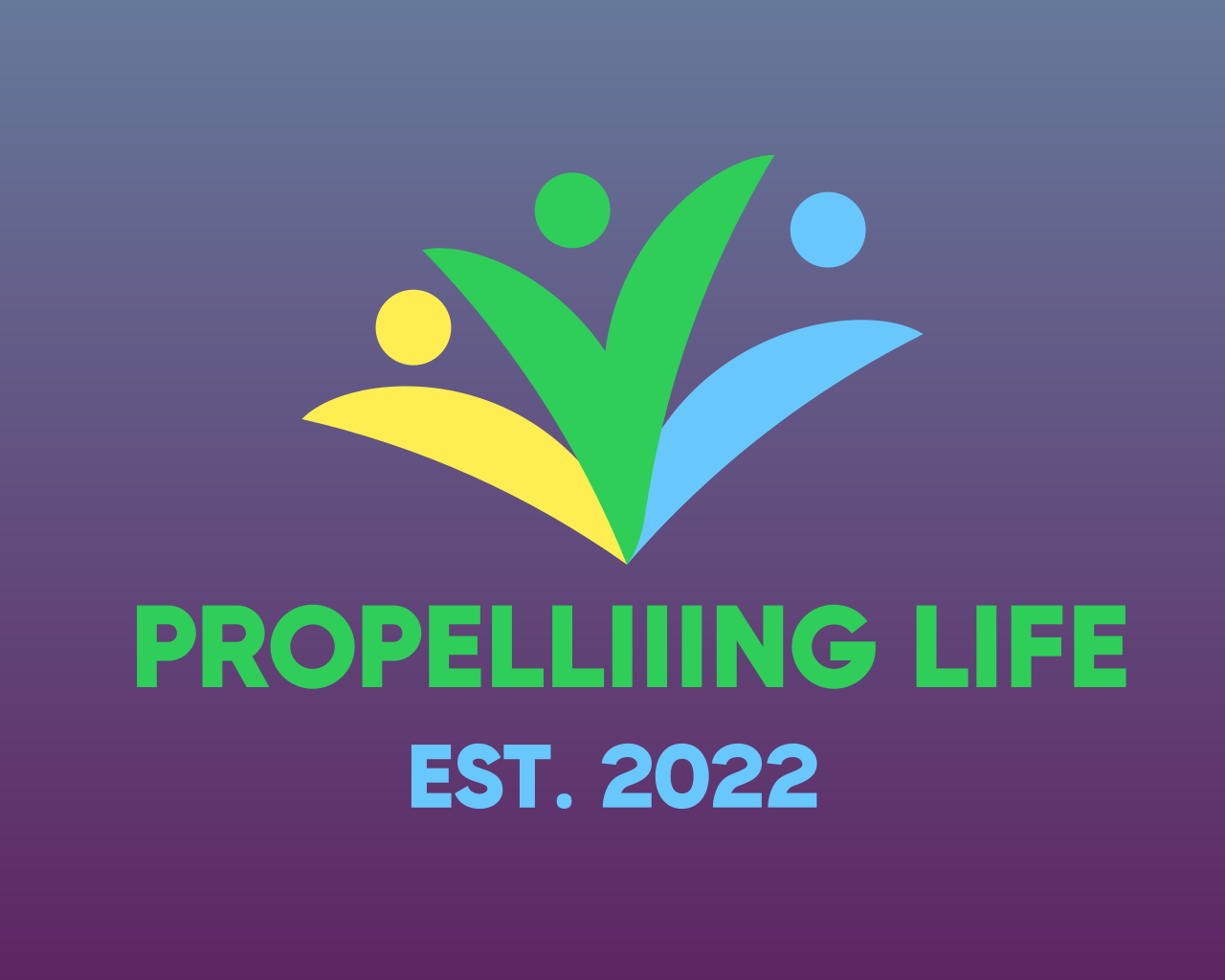March 19, 2024• bytreyharris254
Welcome to a journey of self-discovery and enlightenment, where we delve into the intricate tapestry that weaves our social interactions, psychological makeup, and spiritual beliefs together. Pastor Trey Harris, whose insights illuminate the paths of our multifaceted lives, guides us through this exploration.
With his profound understanding and compassionate approach, Pastor Harris invites us to examine these dimensions’ profound impact on our personal development and the relationships that define our existence.
In our day-to-day lives, we often navigate through a complex world of social norms, emotional responses, and spiritual quests, sometimes without realizing how these aspects interlock and influence our journey. The core message we aim to unfold is the understanding that our social environments, psychological states, and spiritual beliefs are not isolated strands but interconnected threads that shape the fabric of our being.
As we embark on this exploration together, we will uncover how the relationships we forge, the thoughts that traverse our minds, and the beliefs that anchor our souls contribute to the unique individuals we become. This journey is about more than self-awareness; it’s about recognizing the power within us to shape our destiny and enrich our relationships through a balanced integration of our social, psychological, and spiritual selves.
Join us as we step into a world of discovery guided by Pastor Trey Harris’s wisdom and experience. Together, we will navigate the intricacies of our lives, seeking harmony and fulfillment in our beautiful complexity. Welcome to a conversation about life, growth, and the profound connections that make us who we are.
The Three Pillars of Our Being: Social, Psychological, and Spiritual Dimensions
Unraveling the Essence of Our Existence
Three fundamental pillars—the social, psychological, and spiritual dimensions—shape our lives. Each aspect shapes our identity, guides our actions, and influences our perspectives. Understanding these pillars is critical to achieving a balanced and fulfilling life.
The Social Dimension: Our Window to the World
Our interactions with the world around us define the social aspect of our existence. From birth, our family, culture, and societal norms begin to mold our understanding of the world. Our social circles are limited as children, but they expand as we grow, encompassing friends, educators, colleagues, and partners. These interactions are vital, as they teach us empathy, cooperation, and the complexities of human relationships. The social dimension underscores the importance of connection and belonging, shaping our ability to navigate the world as social beings.
The Psychological Dimension: The Inner Workings of the Mind
Our psychological makeup encompasses our thoughts, emotions, and behaviors. This dimension is where our inner world takes form, influenced by our experiences and how we interpret them. From childhood to adulthood, our psychological state evolves, guided by innate tendencies and learned responses. In this realm, we develop our self-esteem, resilience, and understanding of personal identity. The psychological dimension highlights the significance of mental health and emotional well-being in our overall life satisfaction.
The Spiritual Dimension: The Quest for Meaning and Purpose
The spiritual aspect of our lives is the most personal and profound. It relates to our quest for meaning, purpose, and connection to something greater than ourselves. Spirituality can manifest through organized religion, personal beliefs, or a deep unity with the universe. This dimension influences how we perceive our place in the world, values, and aspirations. It offers a foundation for resilience in the face of adversity and a sense of peace amidst life’s turmoil.
The Interplay of the Three Pillars Through Life’s Stages
From the innocence of childhood through the explorations of adolescence to the responsibilities of adulthood, each of these dimensions interacts and evolves, influencing our growth and development. Our social experiences inform our psychological health, which can deepen or challenge our spiritual beliefs. Similarly, our spiritual understanding can shape our social interactions and psychological well-being. This interplay is continuous, highlighting the dynamic nature of our being.
Understanding the three pillars of our being offers a roadmap for navigating life’s complexities. By acknowledging the significance of each aspect and striving for balance among them, we pave the way for a more integrated, harmonious existence. As we journey through the different stages of life, this holistic understanding empowers us to face challenges with resilience, cultivate meaningful relationships, and pursue a life of purpose and fulfillment.

Social Influence on Our Lives: From Childhood to Adulthood
The Foundations of Our Social Self
Our journey into the social world begins the moment we enter life, with our families providing the initial canvas upon which our social selves are painted. How we are raised, our values, and the interactions we observe and engage in during childhood lay the groundwork for our adult social behaviors. Early experiences of sharing, empathy, and communication within our families and early friendships are crucial lessons that inform our understanding of social norms and expectations.
Childhood Interactions Shaping Future Behaviors
Our youth’s playgrounds are more than mere spaces for play; they are arenas where our social skills are tested and developed. Through these early interactions, we learn to navigate the complexities of cooperation, competition, and conflict resolution. These experiences are fundamental, influencing how we perceive and engage with others as we grow and profoundly shaping our future social behaviors.
The Evolution of Social Relationships in Adulthood
As we transition into adulthood, our social sphere expands and diversifies, encompassing relationships of varying depths and dimensions, from intimate partnerships and friendships to professional connections. Each type of relationship challenges us to apply and adapt the social skills learned in childhood, further refining our ability to interact effectively within different contexts.
- Marriage and Intimate Partnerships often serve as mirrors, reflecting our deepest selves while challenging us to grow and adapt in unexpected ways. The dynamics of sharing a life with someone influence our social behaviors, emphasizing the importance of communication, compromise, and mutual respect.
- Friendships: Whether they evolve from childhood bonds or are formed anew, adult friendships provide a vital social outlet and support network. These relationships enrich our lives, offering joy, companionship, and a sense of belonging. They challenge us to maintain connections despite life’s busy nature.
- Professional Connections: The workplace introduces different social dynamics, where collaboration and competition coexist. Navigating professional relationships requires balancing social skills, including diplomacy, assertiveness, and the ability to work as part of a team.
The Cumulative Impact on Social Development
The cumulative impact of these adult relationships on our social development is significant. They offer continuous learning and adaptation opportunities, honing our ability to understand and relate to others. As we navigate the various stages of adulthood, these social experiences further define our identity, influence our worldview, and shape our place within our communities’ social fabric.
Understanding the profound influence of social interactions from our earliest years through adulthood underscores the importance of nurturing healthy relationships. By recognizing these connections’ role in our social development, we can better appreciate their value and strive to cultivate relationships that enrich our lives and foster personal growth.

Psychological Impact of Our Social Environment
The Interplay Between Social Experiences and Psychological Well-Being
Our social environment exerts a profound influence on our psychological landscape. The interactions and relationships we navigate daily shape our perceptions of the world around us and our internal thought processes, emotional responses, and behavioral patterns. This complex interplay between our social experiences and psychological well-being underscores the significance of understanding these impacts on personal growth and our relationships’ health.
Shaping Thoughts and Behaviors
From early childhood, social encounters begin to mold our cognitive frameworks—how we think about ourselves, others, and situations. Positive interactions, such as supportive friendships and nurturing family relationships, can bolster our self-esteem and foster a sense of security. Conversely, negative experiences, like social rejection or conflict, can lead to self-doubt and anxiety. Over time, these accumulated experiences contribute to developing our core beliefs and attitudes, influencing our future social interactions and decisions.
Emotional Responses Rooted in Social Experiences
Our emotional responses are deeply intertwined with our social experiences. The joy felt from a meaningful connection, or the pain of a betrayal highlights how closely our emotions are linked to our relationships. These emotional experiences play a critical role in our psychological development, teaching us how to manage feelings such as happiness, sadness, anger, and disappointment. Understanding and navigating these emotions is essential for maintaining psychological balance and fostering healthy relationships.
Behavioral Patterns Influenced by Social Dynamics
The behavioral patterns we exhibit are often reflections of our social environments. Adaptive behaviors, such as empathy and cooperation, may be cultivated in supportive social settings, while defensive behaviors, such as withdrawal or aggression, can arise in response to challenging interactions. Recognizing the origin of these patterns is crucial for personal development, as it allows us to address and modify behaviors that may hinder our relationships and overall well-being.
The Importance of Recognizing Psychological Impacts
Acknowledging the psychological impacts of our social environment is a vital step toward personal growth and relational health. By understanding how our interactions shape our thoughts, emotions, and behaviors, we can begin to unravel the complexities of our psychological makeup. This awareness empowers us to make conscious choices in our relationships, pursue positive social experiences, and foster a healthier psychological state.
Moreover, this understanding encourages us to be more empathetic toward others, recognizing that their behaviors and emotional responses are also products of their social experiences. Thus, we create a more compassionate and supportive social environment, conducive to mutual growth and understanding.
As we explore the depths of our psychological selves, let us remember the transformative power of our social experiences. By embracing their lessons, we can navigate the personal development journey with greater insight, resilience, and openness to change.

The Spiritual Dimension and Its Connection to Social and Psychological Aspects
The Interwoven Tapestry of Spirituality with Our Social and Psychological Selves
While distinct, our spiritual dimension is intricately interwoven with our social experiences and psychological states. This nexus forms a comprehensive view of our being, illustrating how spirituality is not only a refuge or a set of beliefs but also a lens through which we interpret and engage with the world around us. The influences of our social interactions and psychological makeup on our spiritual beliefs and practices highlight a dynamic interplay that shapes our journey through life.
Spiritual Beliefs Shaped by Social and Psychological Experiences
Our spiritual beliefs often reflect the amalgamation of our social environments and internal psychological landscapes. Positive social experiences, such as acts of kindness or communal support, can reinforce our faith in higher virtues and the interconnectedness of life. Conversely, challenging experiences might prompt us to seek solace and understanding within our spiritual beliefs, leading to a deeper exploration of our spiritual selves. Similarly, our psychological disposition—shaped by our experiences, thoughts, and emotions—can influence how we perceive and practice our spirituality, guiding us towards beliefs that resonate with our internal state.
Spirituality as a Source of Guidance, Comfort, and Purpose
Spirituality, in its essence, serves as a beacon of guidance, comfort, and purpose through the myriad stages of life. It provides a framework for understanding our place in the universe, offering solace during distress and a sense of belonging in an often chaotic world. Through spiritual practices, whether prayer, meditation, or communal worship, we find a means of navigating our internal complexities and societal pressures, drawing strength from a well deeper than the observable.
- Guidance: Spirituality offers a moral and ethical compass, helping us navigate life’s challenges with principles that foster growth, compassion, and understanding.
- Comfort: In moments of sorrow or confusion, our spiritual beliefs can provide a profound sense of comfort and peace, reassuring us of a larger purpose and the presence of a caring force.
- Purpose: Spirituality imbues our lives with a sense of purpose. It encourages us to look beyond the material and transient to pursue deeper significance and fulfillment.
The Synergistic Influence of Spirituality on Our Social and Psychological Well-being
Our spiritual beliefs and practices are influenced by our interactions and mental states, which in turn exert a transformative influence on our social behavior and psychological health. Spirituality can inspire us to engage more compassionately and empathetically with others, fostering healthier and more meaningful relationships. Psychologically, a strong spiritual foundation can enhance our resilience, providing a stable anchor in turbulent times and a source of optimism and hope.
Embracing Spirituality in the Tapestry of Life
Recognizing the role of spirituality in harmonizing our social and psychological dimensions encourages a holistic approach to personal development and well-being. As we navigate the complexities of life, integrating our spiritual beliefs with our social interactions and psychological insights can lead to a richer, more balanced existence. Spirituality, in its broadest sense, invites us to embrace a journey of continual growth guided by a quest for deeper understanding and connection to the world and beyond.

Practical Examples: Everyday Differences in Perspectives and Preferences
Navigating Daily Life Through Our Unique Lenses
Our journeys, shaped by distinct social, psychological, and spiritual backgrounds, invariably lead to a kaleidoscope of perspectives and preferences in everyday life. While seemingly trivial, these differences are profound indicators of our complex makeup and the diverse paths we’ve traversed.
- Household Tasks: Consider the simple act of washing dishes. Some may prefer handwashing to preserve the integrity of delicate dishes, which might stem from a childhood where family heirlooms were treated with care. Others might lean towards the efficiency of a dishwasher, reflecting a psychological inclination towards time-saving practices, possibly cultivated in a fast-paced family environment.
- Food Choices: The decision to eat fried chicken or a grilled alternative could reflect deeper social and psychological influences. One might gravitate towards fried foods, not just for the taste but as comfort food that evokes fond memories of social gatherings. Another might choose grilled dishes, influenced by a psychological and spiritual commitment to health and well-being.
These everyday choices are windows into our social upbringing, psychological state, and spiritual beliefs, highlighting how intertwined these aspects shape our daily lives.
Assessing Our Current State: Social, Psychological, and Spiritual
A Path to Holistic Self-Understanding
Understanding where we stand in our social, psychological, and spiritual dimensions is crucial for holistic well-being. Here’s a self-assessment guide that can help illuminate how these aspects interact within us:
- Social Assessment: Reflect on your relationships and social interactions. Are they fulfilling? Do they reflect the values you admire? Assessing your social connections can reveal much about your social preferences and areas for growth.
- Psychological Assessment: Consider your thought patterns, emotional responses, and behaviors. How do they serve you in daily life? Identifying areas of strength and potential stressors can help you understand your psychological well-being.
- Spiritual Assessment: Contemplate your sense of purpose, beliefs, and practices. How do they align with your actions and outlook on life? This reflection can uncover the depth of your spiritual life and its influence on your overall well-being.
Bridging the Gaps
This self-assessment isn’t just about identifying where you excel or where you might need support; it’s about recognizing how these dimensions influence one another. Understanding this can guide you toward a more integrated approach to personal development that honors the complexity of your being and fosters growth in every area of your life.
By reflecting on these aspects, you’re taking a vital step towards nurturing a balanced and enriched life, one that embraces the diverse influences that make you who you are. This journey of self-assessment and subsequent growth is a testament to the dynamic interplay of our social, psychological, and spiritual dimensions, offering a roadmap to a more harmonious and fulfilling existence.

Moving Forward: Enhancing Our Social, Psychological, and Spiritual Harmony
Crafting a Balanced Life
The quest for harmony among our social, psychological, and spiritual selves is a journey toward wholeness and fulfillment. Achieving this balance is not about reaching a static state of perfection but embracing a dynamic growth and integration process. Here are strategies to foster this harmony, enhancing our relationships and personal satisfaction.
Integrative Strategies for a Harmonious Being
- Mindful Social Engagement: Cultivate social connections that resonate with your values and contribute positively to your well-being. Engage in communities that encourage growth, understanding, and mutual support. This mindful approach to social interaction can enrich your psychological health and deepen your spiritual connections.
- Self-Reflection and Awareness: Regularly take time to reflect on your thoughts, emotions, and behaviors. Understanding your psychological patterns can illuminate how your social experiences and spiritual beliefs influence your overall state of mind. This awareness is crucial for identifying areas where adjustments are needed to maintain balance and harmony.
- Spiritual Practices for Daily Life: Incorporate spiritual practices that align with your beliefs and support your psychological and social well-being. Whether through meditation, prayer, or acts of service, these practices can offer a sense of purpose, peace, and connection to something greater than oneself.
- Openness to Learning and Growth: Embrace the idea that personal development is an ongoing journey. Be open to learning from your experiences and relationships, allowing them to inform and enrich your social, psychological, and spiritual dimensions.
Reflecting on Adjustments and Fulfillment
As we strive for balance, it’s important to periodically reflect on our lives and the interplay of our social, psychological, and spiritual aspects. Consider these questions as part of your reflection:
- How do my social interactions influence my mood and outlook on life?
- Do my psychological states affect the quality of my relationships and spiritual practices?
- How does my spirituality shape my interactions with others and my understanding of myself?
Reflection can reveal areas where adjustments may lead to greater harmony and fulfillment. Fostering deeper social connections, adopting healthier psychological practices, or reinvigorating your spiritual life could enhance your overall well-being.
Embracing Harmony as a Path to Fulfillment
Achieving harmony among the social, psychological, and spiritual aspects of our lives is a path filled with discovery and growth. By embracing strategies that foster integration and balance, we can navigate the complexities of life with grace and resilience. Encourage yourself to reflect on your journey, remain open to adjustments, and actively seek the harmony that leads to a more satisfying and meaningful existence.
In this pursuit, remember that balance is not a destination but a continuous journey. With each step, we learn more about ourselves and the profound connections that make us whole. Let us move forward with the commitment to enhance our social, psychological, and spiritual harmony, embracing the rich tapestry of our lives with intention and joy.

Embracing the Journey to Wholeness
As we draw our exploration to a close, the importance of recognizing and nurturing our social, psychological, and spiritual dimensions cannot be overstated. These three pillars of our being, intricately interwoven, form the essence of who we are and how we navigate the world. It’s through understanding and balancing these aspects that we can achieve a richer, more fulfilling life. This journey toward integration and harmony is only sometimes straightforward, but it is undoubtedly rewarding, offering us a pathway to deeper connections, personal growth, and inner peace.
A Word of Encouragement from Pastor Trey Harris
Pastor Trey Harris offers these words of encouragement to all who are navigating this complex yet beautiful journey: “Remember, the path to harmony within yourself and with the world around you is a journey of the heart and soul. Embrace each moment with an open heart and an open mind, knowing that every experience, challenge, and joy is a step toward becoming the fullest expression of yourself. Trust in the process, lean on your faith, and never underestimate the power of kindness—to yourself and others—along the way.”
An Invitation to Share and Grow Together
We invite you, our readers, to share your thoughts, struggles, and successes as you navigate the social, psychological, and spiritual dimensions of your life. Your journey is unique, but you are not alone. By sharing our experiences, we create a community of support and understanding that can uplift and inspire us all.
Whether it’s a challenge you’ve overcome, a strategy that’s brought you closer to harmony, or a question you’re pondering, your insights are valuable. Let’s continue this conversation, fostering an environment where we can all learn from each other and grow together.
Moving Forward with Purpose and Positivity
In recognizing and nurturing our social, psychological, and spiritual dimensions, we open ourselves to a world of possibilities. Let us move forward with purpose, positivity, and an unwavering commitment to our personal development. May we all find the balance and harmony we seek, enriching not only our own lives but also the lives of those around us.
Thank you for joining us on this journey. We look forward to hearing from you and continuing to explore the depths of our being together.
Last modified: September 24, 2024














